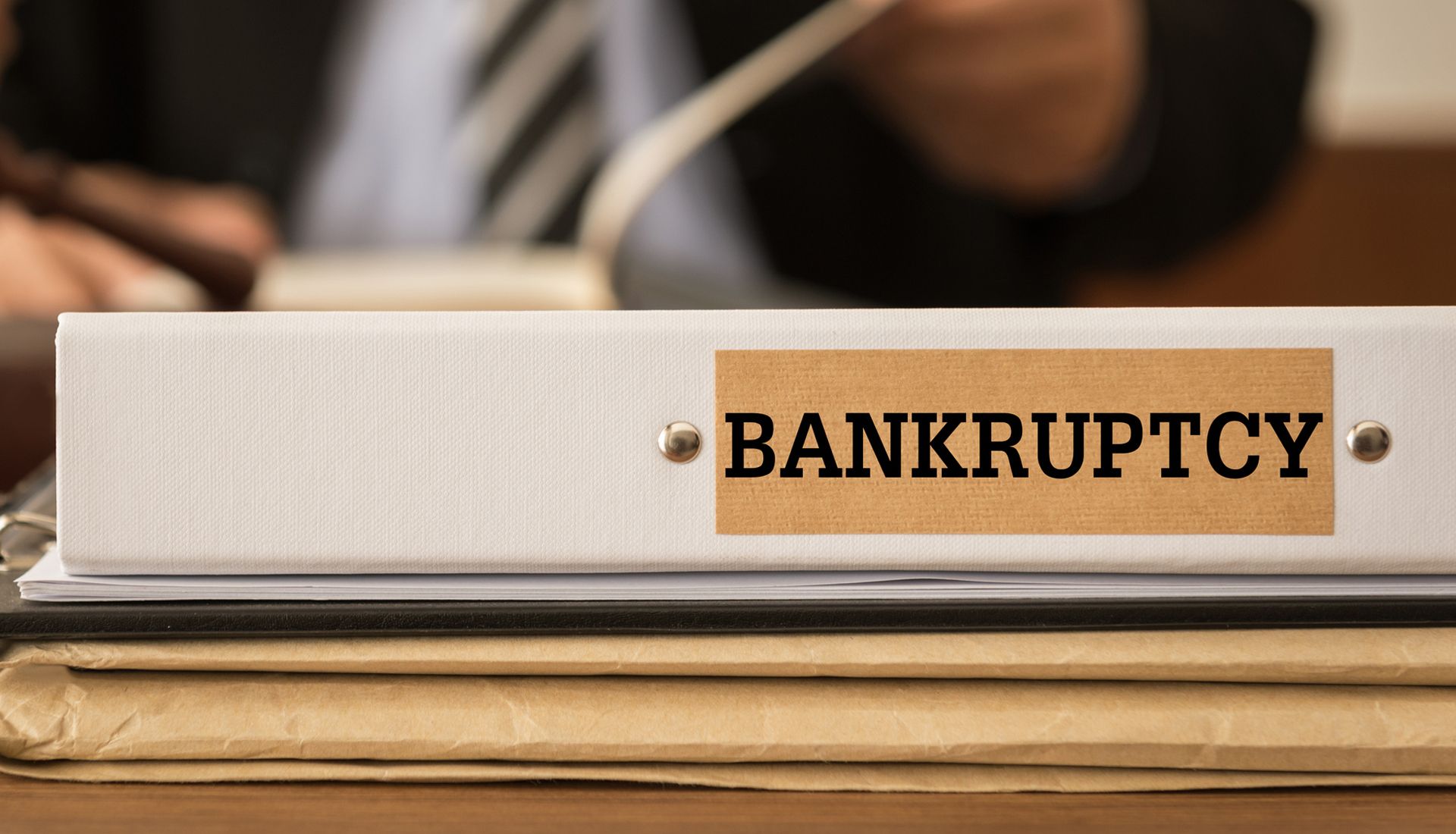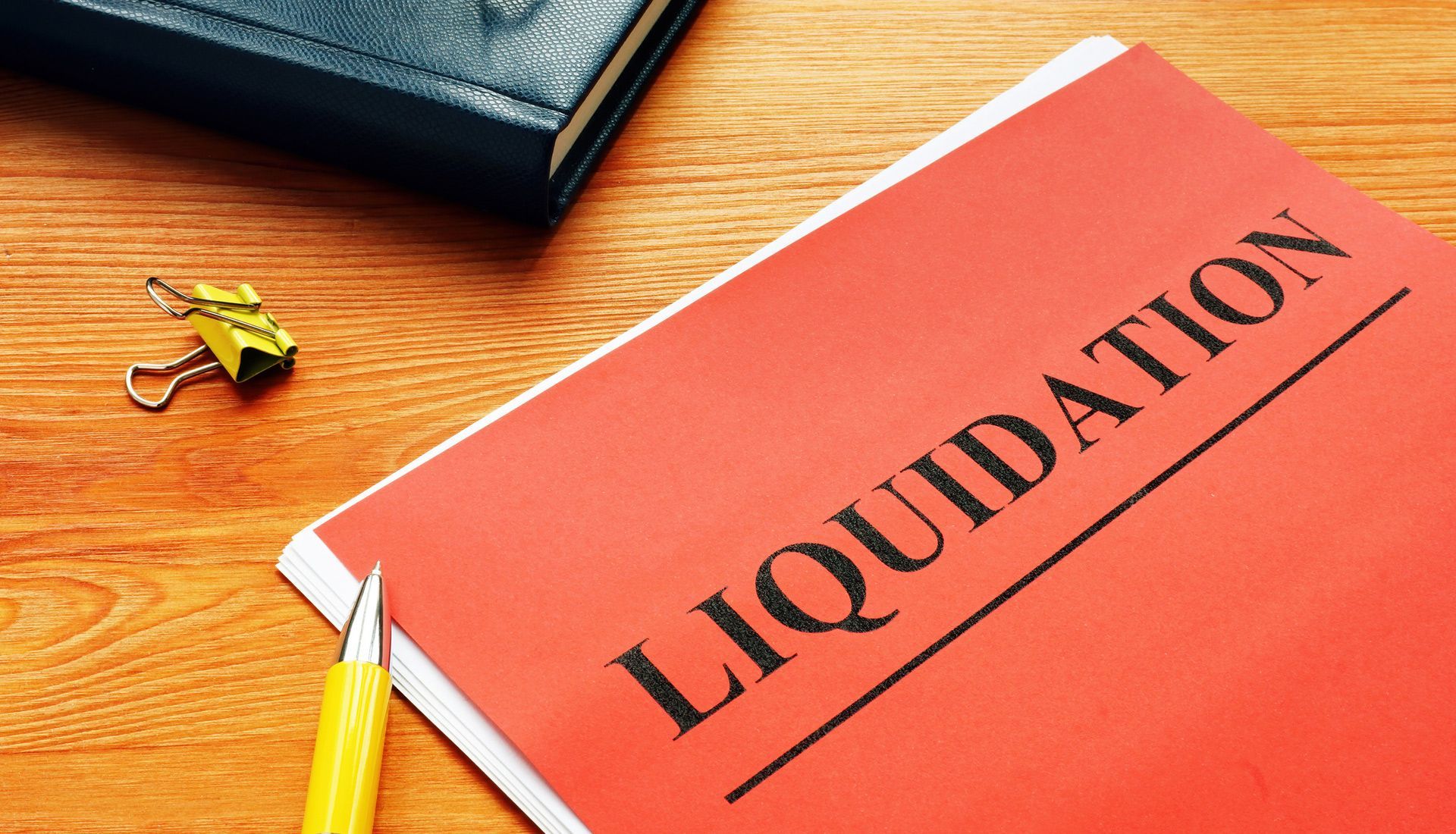Articles
Our Latest Insolvency Articles From Our Team in Hobart
Our Articles

By Barry Hamilton
•
15 Apr, 2024
What happens to my superannuation if I become bankrupt? As bankruptcy will result in available assets being realised it is important to consider the status of your superannuation balances. Superannuation is not a personal asset and is held on trust for you and governed by superannuation law and for this reason it is not available to your trustee but is also protected by section 116(2)(d) of the Bankruptcy Act 1966 . It is important that you do not withdraw superannuation as a lump sum during bankruptcy as it would become a personal asset and available to your estate. If you entered into pension phase during bankruptcy, then the annual payment would be assessed as part of your income and you may be required to make a contribution to your estate. Can I have a self-managed super fund during bankruptcy? Once you become bankrupt you can no longer be trustee of your own super fund, if you are a director of a company that is trustee of your superfund you can no longer act in that role as a bankrupt cannot be a director of a company. If you have a self-managed superfund you should speak to your financial advisor prior to becoming bankrupt so proper planning can be put in place in order for your superannuation to remain protected. Does bankruptcy affect any life insurance? Section 116(2)(d) of the Bankruptcy Act 1966 provides that policies of life insurance held by the bankrupt and/or their spouse or de facto partner are exempt property where the proceeds of such policies are received on or after the date of bankruptcy and become protected money. This can also extend to property purchased with protected money so it remains unavailable to a bankruptcy trustee to realise. Protection will only be available on or after the date of bankruptcy - not before. If insurance proceeds or superannuation is received before bankruptcy and placed in a bank account or used to purchase real estate it is not afforded the protection of being exempt property and will be available to creditors. Please do not hesitate to contact our firm for a free, initial confidential consultation to discuss your options available.

By Barry Hamilton
•
15 Apr, 2024
At the date of bankruptcy all of your divisible property vests in your trustee. Divisible property is all property except excluded items such as tools of trade, principal means of transport (both up to threshold limits) and household furniture. As bankruptcy normally operates for three years and one day section 116(1)(a) of the Bankruptcy Act 1966 deals with property acquired by you after the date of bankruptcy and before your discharge date. Section 116(1)(a) of the Bankruptcy Act 1966 devolves after acquired property in your estate and is therefore payable to the trustee. If your rights to receive property from a deceased estate accrue during this period then the right is claimed by your trustee. Even if the estate was not finalised until after the date of discharge the right to receive the entitlement accrues prior to the date of discharge and therefore forms part of your estate. A bankrupt is required to disclose all property and failure to report a deceased estate may result in: Your bankruptcy being extended up to eight years. Prosecution due to failure to disclose asset. Section 265 of the Bankruptcy Act 1966 provides a penalty of up to one years imprisonment for not disclosing an asset to a trustee. Please do not hesitate to contact our firm for a free, initial confidential consultation to discuss your options available.

By Kiara Calvert
•
15 Apr, 2024
1. Who can go bankrupt? Bankruptcy only applies to individuals and not companies. In cases where businesses operate as sole traders or partnerships, only the individual/s can become bankrupt, not the business entity itself. 2. What is bankruptcy? It’s a legal process where a person is declared bankrupt if they are unable to pay their debts due to creditors and a bankruptcy trustee is appointed to manage the individual’s bankruptcy. 3. Can I earn income whilst I’m a bankrupt? There is no limit to the amount of income that you can earn while you are a bankrupt, however, if your after tax income exceeds a set amount, you may have to pay contributions from your income to your trustee. This amount changes with the number of dependents you have. 4. Will I lose my job? Being bankrupt doesn’t normally stop you from working, but there are restrictions to be aware of: · Some trades and professions restrict you from working if you are a bankrupt; and · Whilst you are a bankrupt you can’t be a company director or officer. 5. Can I keep my car? Being a bankrupt doesn’t always stop you from owning a vehicle, however, there are some restrictions. In order to keep your vehicle: 1. The value of the vehicle must be below a set amount; 2. The vehicle is your primary means of transport; and 3. You maintain repayments on your vehicle if it is under finance. 6. Can I keep my house? That depends on a few factors including: How much is owed to the bank; Your financial interest in the house; and The rights of your partner or co-owner 7. How long does bankruptcy normally last? The rule is three years and 1 day, however in some cases early discharge may be available.

By Kiara Calvert
•
15 Apr, 2024
Lets face it, owning a business in the last couple of years has been tough – the covid-19 pandemic, rising interest rates and escalating costs across various sectors, including labour, materials, rent and utilities. These factors have made it difficult for a business to maintain financial stability and profitability. If your business is struggling, you should ask yourself one question? Are your accounts and lodgements up to date? If not, you should contact your accountant to bring these lodgements up to date and to see if they can assist you in managing your debt and achieving financial viability. Secondly, if your business is still struggling you should seek advice from a professional advisor to discuss your specific circumstances and options available. You should avoid a head in the sand approach. Ignoring financial difficulties will only make the situation worse. When you’re dealing with financial stress, it can be difficult to see the bigger picture and make rational decisions. Seeking guidance from an independent and trustworthy advisor can provide clarity and perspective, helping you make informed choices about your business. Be proactive in seeking guidance as earlier engagement often provides more options available and can help alleviate stress by providing solutions and a roadmap for dealing with your financial situation. Don’t delay in seeking help, the time to act is now! Please do not hesitate to contact our firm for a free, initial confidential consultation to discuss your options available.

By Barry Hamilton
•
15 Apr, 2024
You may have heard the expression, Director Penalty Notice (“DPN”), if not, it is important that you seek professional advice concerning such notices. A DPN is a method by which the Australian Taxation Office (“ATO”) can make directors personally liable for unremitted group tax, PAYG and superannuation. Directors are responsible for ensuring that the company’s PAYG, GST and super obligations (known as DPN liabilities) are reported and paid on time. Failure to do this will make current, and in some cases, former directors personally liable. This is due to the company debt liability and the director penalty liability being parallel in nature and the ATO can recover these amounts by issuing a DPN, which is a notice that the ATO must give to directors that enables it to recover the company’s unpaid amounts – PAYG, GST and super obligations. The notice will be posted to the director/s address registered with ASIC and the ATO cannot commence proceedings to recover the director penalty until 21 days after a DPN is issued to a director. Therefore, it is vital that a director’s postal address is current and updated as the date the ATO posts is the date the notice is given, that’s the day the time bomb starts ticking, not the date the director actually receives the notice. If all company lodgements are up to date, the ATO will issue a Non-Lockdown DPN, whereby the director will have 21 days available to take one of the four options available to avoid personal liability under a DPN: Pay the amount in full; Appoint a voluntary administrator; Put the company into liquidation; or Appoint a small business restructuring practitioner If lodgements are not up to date (or reported more than 3 months after the due date) the ATO will issue a Lockdown DPN to company directors. In this case, the penalty permanently locks down on the director and the only option available for directors is to pay the debt in full. Placing the company into voluntary administration or liquidation will not extinguish this personal liability. Therefore, it is vital that directors ensure their lodgements are up to date, even if they can’t pay, because it gives directors more options available if they are issued with a DPN. If directors receive a DPN and fail to take any action, the ATO may commence action against the company to recover the director penalty amounts, and usually take steps to wind up the company. In addition, once a DPN has been issued, the ATO can also pursue any director personally as the debt is parallel in nature. For example, if a company has multiple directors, the ATO can issue a DPN against any one or all of the directors and then seek to recover the amount from the director of its choice. Directors with deep pockets should be wary. The ATO can recover the penalty amounts by: Issuing garnishee notices Offsetting any tax credits against the director penalties Commence legal proceedings, which could result in bankruptcy Please consider if general advice is appropriate for your needs, contact a professional advisor, your lawyer or a member of the Australian Restructuring Insolvency and Turnaround Association (“ARITA”). ARITA members are bound by high standards imposed by that body. Barry Hamilton and Kiara Calvert are both full members of ARITA.

By Barry Hamilton
•
15 Apr, 2024
In order for the Australian Taxation Office (“ATO”) to wind up a company it must first deliver a creditors statutory demand which will provide details of the amount that is due, what your options are and when the amount must be paid by. Do not ignore this document. Instead, contact your accountant, legal or professional advisor who is aware of your circumstances and provides independent advice so you can satisfy the requirements of the document. If you choose to ignore a statutory demand, the ATO will usually issue a creditors petition. A creditors petition is lodged on the website of the Australian Securities and Investments Commission (“ASIC”) and advertised on insolvency notices ( www.insolvencynotices.asic.gov.au ). This site is public and the notice may be viewed by parties including your competitors, customers and bankers. Be wary of any unsolicited calls from insolvency advisors seeking to be appointed as external administrator or other firms claiming they can provide special assistance. If you need to seek professional help consult your legal advisor or a member of the Australian Restructuring Insolvency and Turnaround Association (“ARITA”). ARITA members are bound by high standards imposed by that body. Barry Hamilton and Kiara Calvert are both full members of ARITA. Remember to keep on top of your taxation obligations, always lodge on time and if you fall behind ring the ATO to arrange a payment arrangement and talk to your professional advisors as it is in their interests to help you in these circumstances.

By Barry Hamilton
•
15 Apr, 2024
Maintaining the registration of a private company with the Australian Securities and Investments Commission (“ASIC”) is often not cost effective, particularly when the company has ceased trading with no ongoing business activities. In such cases, opting for a voluntary winding up may prove more efficient, especially if the company has assets that can be better distributed through this process. The initial step involves consulting your current accountant, who will ensure that all accounts are prepared, and necessary returns are submitted to the Australian Taxation Office (“ATO”). To facilitate a cost effective liquidation, it is crucial for the directors or their accountants to ensure all business transactions are complete and the company is fully prepared for liquidation. Before initiating the winding up process, several considerations must be taken into account: Make sure all insurance policies are correctly terminated, especially if run off cover is required; Where possible, ensure all creditors are paid and accounts closed including telephone, essential utilities etc; Finalise BAS lodgements (if required) – your accountant will assist you in this matter; Make sure there are no outstanding issues, including claims before the Court (even if such claims are subject to insurance indemnity); and If assets are to be transferred and funds are to be borrowed you need to discuss this with the liquidator so all timing issues are capable of being met. Our office provides an extensive fact sheet that explains members’ voluntary liquidation. Please feel free to contact Samantha Nightingale via telephone at 03 62244660 or through email at reception@hcatas.com.au to obtain a complimentary copy.
Want to know more about our insolvency services? Call our team on
Quick Links
Contact Information
Level 1/63 Salamanca Pl, Battery Point, TAS 7004
Registered Liquidator
Registered Trustee in Bankruptcy
Small Business Restructuring Practitioner
Business Hours
- Mon - Thu
- -
- Friday
- -
- Sat - Sun
- Closed
Public holidays Closed
Public holidays Closed
ABN: 27 093 137 305
Liability limited to a scheme approved under Professional Standards Legislation.
Content, including images, displayed on this website is protected by copyright laws. Downloading, republication, retransmission or reproduction of content on this website is strictly prohibited. Terms of Use
| Privacy Policy


